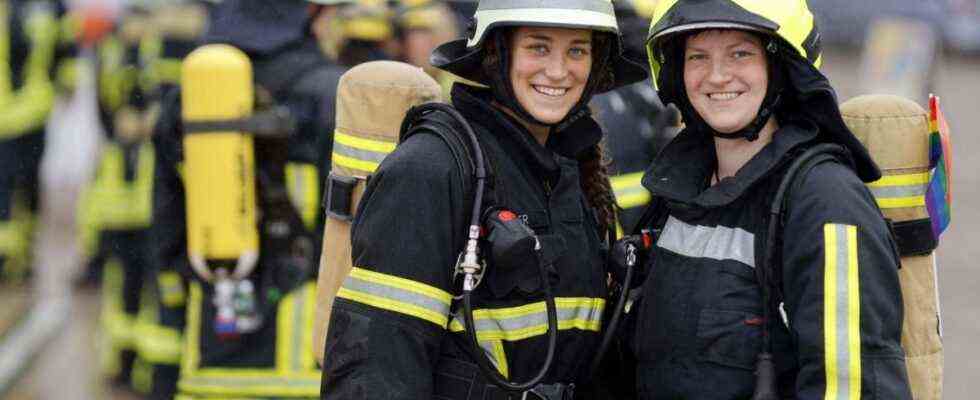The first phase of the Corona crisis brought the state an intermediate high in 2020 in terms of its reputation with the citizens. But now it is obviously over again, at least if you do the new citizen survey on the public service believes that the Beamtenbund (DBB) commissioned the polling institute Forsa. According to the survey, in 2020 only 40 percent of citizens found that the state was overwhelmed with its tasks and problems. Meanwhile, however, it is 51 percent – not quite as many as in 2019, when 61 percent were of this opinion, but at least one in two.
Once a year, the Civil Service Association lets citizens feel their pulse via Forsa. Specifically, he is concerned with the public service; the DBB trade union family organizes many civil servants and employees in the service of the state – from police officers to tax officials. For the current survey, representative selected citizens were interviewed in July 2006 and an additional 1,004 representative selected public sector employees.
More and more respondents consider officials to be “stubborn”
DBB boss Ulrich Silberbach said on Tuesday about the results: “We are sliding into a fundamental crisis of confidence between the state and the population.” Silberbach finds it only logical that the civil servants’ reputation has suffered with the increased dissatisfaction. They would be “held liable on behalf of all state inadequacies”. Indeed, the survey shows declines in the positive traits attributed to officials. The proportion of citizens, on the other hand, who attribute negative qualities to public servants has risen – most clearly when it comes to the attribute “stubborn”.
Citizens were also asked about the standing of individual professional groups, in and outside of the public service. The civil servant himself only enjoys a high reputation among 34 percent of citizens; a year earlier it was three percentage points more. With 22 percent and minus two percentage points, politicians are even worse off. Journalists come to 41 percent, at the bottom of the table you can find insurance brokers with eight percent. As in previous years, the front runners are firefighters, 94 percent of whom are highly regarded. In second place are nurses with 89 percent, just ahead of doctors (88 percent) and geriatric nurses (87 percent). They are followed by police officers, educators and garbage collectors. The biggest climbers, however, were seven percentage points more than in the previous year: the soldiers.
Refuse collection and street cleaning get top grades, ministries bad
The school grades of the respondents for the public institutions, however, partly differ from the reputation of the professional groups. Schools, for example, only get a three, while teachers are very popular with 69 percent of those surveyed. The top institutions from the citizens’ point of view are garbage collection and street cleaning, followed by libraries, museums and kindergartens. The federal ministries bring up the rear. They recently had a lot to do with all their Corona regulations – but their reputation has deteriorated compared to the previous year.
When it comes to the state’s ability to act, East Germans, the self-employed, the elderly and people with a secondary school leaving certificate are more skeptical than West Germans, employees, younger people and academics. When asked about the various policy areas, there were shifts compared to the previous year: While in 2020 only 16 percent of those questioned said the state was overburdened during the Corona crisis, it is now 20 percent. Another 20 percent make this judgment in terms of climate protection, compared to only ten percent in the previous year.
As always before a Bundestag election, the Civil Service Association has this time asked about the party preference of public sector employees. The most recent survey is from August. The result: Although the Greens want civil insurance in their pension and health policy, which would mean an end to the social security privileges of civil servants, they were ahead of the Union and the SPD – with civil servants even more clearly than with salaried employees. “Surprising”, found the DBB boss Silberbach and explained it, among other things, with the “secure professional environment” of the officials. Then the future of the children and grandchildren is at the center. And in fact, environmental and climate protection is the only policy area in which the officials and employees of the state attribute more competence to the Greens than to the other parties. But according to the survey, it is also one of the most important for them.

